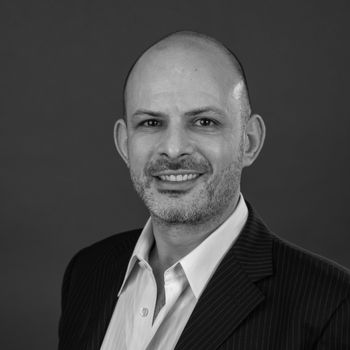PROF GIORDANO: Colleges should adopt robust free speech protections
The culture of ideological intolerance on college campuses is pervasive. This is why so many Americans and employers have lost faith in our academic institutions and have begun to question the value of a four-year college degree.
Nicholas Giordano is a professor of Political Science, the host of The P.A.S. Report Podcast, and a fellow at Campus Reform’s Higher Education Fellowship. With 2 decades of teaching experience and over a decade of experience in the emergency management/homeland security arena, Professor Giordano is regularly called on to speak about issues related to government, politics, and international relations.
The Foundation for Individual Rights and Expression (FIRE) has released its annual “Spotlight on Speech Codes” report, and not surprisingly, 85.4% of colleges in the United States maintain policies that regulate and restrict free speech and expression on college campuses.
While the report indicates an increase in the number of institutions receiving a green light, it also suggests that many higher education institutions are being more nuanced and evasive in their approach to curtail free speech to deflect scrutiny. The culture of ideological intolerance on college campuses is pervasive. This is why so many Americans and employers have lost faith in our academic institutions and have begun to question the value of a four-year college degree.
FIRE’s rating system uses a color-coded approach. A red light indicates an institution possesses a policy that significantly restricts speech. A yellow light signals the potential to suppress protected speech or restrict certain categories of speech. In contrast, a green light implies that a university’s policies pose no serious threat to student expression.
[RELATED: Report finds that 20% of US colleges ‘clearly and substantially restrict free speech’]
The total number of institutions earning a green light is at an all-time high – 12.9%. While 12.9% may seem like a paltry number, this number has steadily climbed from 2% since 2006 and improves the overall academic environment. Another trend is that in 2006, 75% of the institutions received a red light, and while there was a slight uptick from last year, 19.3% to 20%, it remains well below where it was 18 years ago. A more alarming trend is the number of yellow lights that have jumped from 21% in 2006 to 65.4% in 2024.
Given the inverse proportion of institutions that have moved from red light to yellow light, it is clear that colleges have not sought to address their restrictive policies. Instead, they have chosen to repackage and rebrand their authoritarian speech policies. They exploit loopholes and use vague policies to avoid public backlash, while still maintaining control over speech.
Unfortunately, leftist groupthink is prevalent on college campuses and has led to many restrictive speech policies and bias reporting systems. The effect is that nearly 80% of college students feel the need to self-censor their ideas and opinions out of fear of retribution. The groupthink mentality is an infection, and when unchallenged, it spreads from campus to campus.
However, the FIRE survey shows some colleges have woken to the realization that the censorship has gone too far, and have recommitted their campuses to upholding the principles of free speech and expression. DePauw University, the Georgia Institute of Technology, Radford University, and the University of Tulsa are new additions to FIRE’s green light list.
Given the dire state of higher education – loss of confidence, a shift in corporate hiring, and the donor revolt – a unique opportunity exists to build on this momentum. We need to exert pressure on red and yellow-light institutions and compel them to implement reforms that promote intellectual exploration and open debate. These reforms include dismantling free speech zones and bias reporting systems, punishing those who attempt to silence guest speakers, and addressing instances where professors penalize students based on their personal biases. Additionally, we must eliminate Diversity, Equity, and Inclusion (DEI) degree requirements and loyalty oaths.
If we continue to maintain pressure, more and more college campuses will adopt robust free speech protections. While these red and yellow-light institutions may resist as they are deeply invested in leftist ideology, Campus Reform has shown that raising awareness can lead to success and positive change. Our reporting has influenced the dismantling of divisive DEI programs across states and within higher education institutions. With persistence, there is no reason that these institutions cannot one day earn a spot on FIRE’s green light list and restore confidence in our higher education system.
Editorials and op-eds reflect the opinion of the authors and not necessarily that of Campus Reform or the Leadership Institute.

